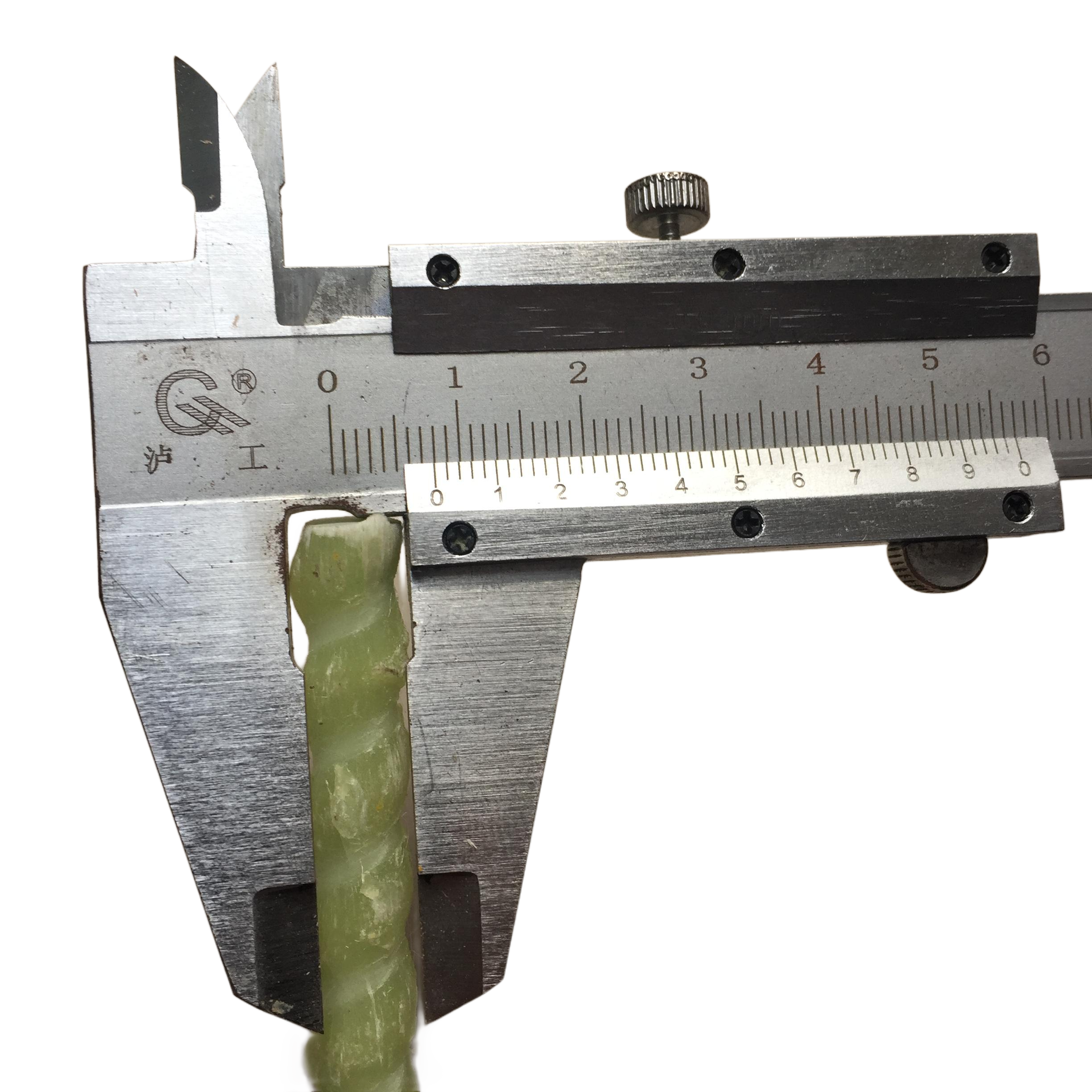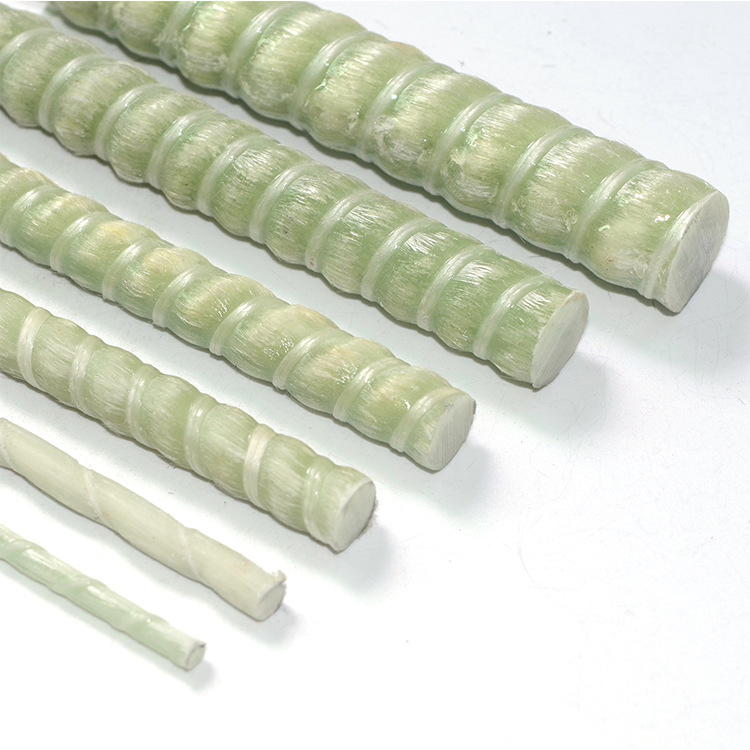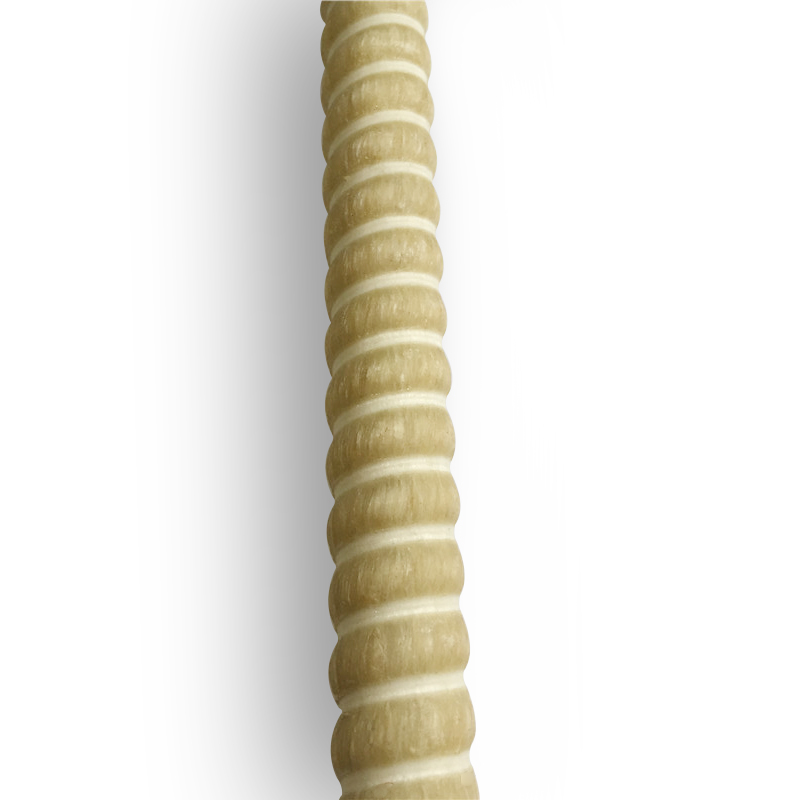Introduction
Fiberglass Rebar has emerged as a revolutionary material in the construction industry, offering a superior alternative to traditional steel reinforcement. With its exceptional properties such as corrosion resistance, high tensile strength, and lightweight nature, it is transforming the way infrastructures are built and maintained. This article delves into the significance of Fiberglass Rebar, exploring its advantages, applications, and the impact it has on modern construction practices.
Advantages of Fiberglass Rebar
Fiberglass Rebar offers numerous benefits over conventional steel rebar, making it an attractive option for engineers and architects. Firstly, its corrosion resistance ensures longevity in structures exposed to harsh environmental conditions. Unlike steel, Fiberglass Rebar does not rust, which significantly reduces maintenance costs over time. Moreover, its high tensile strength provides robust reinforcement without adding excessive weight to the structure.
Another notable advantage is its non-conductive nature. This property is particularly beneficial in applications where electrical conductivity could pose safety risks or interfere with sensitive equipment. Additionally, Fiberglass Rebar is magnetic neutrality, making it suitable for use in MRI rooms and other settings where magnetic interference must be minimized.
Lightweight and Easy Installation
The lightweight characteristic of Fiberglass Rebar simplifies transportation and handling on construction sites. It weighs significantly less than steel—approximately one-quarter of the weight—which not only reduces shipping costs but also eases the installation process. Workers can maneuver the rebar more efficiently, enhancing productivity and reducing the potential for workplace injuries.
Cost-Effectiveness Over Lifecycle
While the initial cost of Fiberglass Rebar may be higher than traditional steel, the long-term savings are substantial. The durability and minimal maintenance requirements contribute to a lower total cost of ownership. Structures reinforced with Fiberglass Rebar have extended service lives, reducing the frequency of repairs and replacements.
Applications in Modern Construction
The versatility of Fiberglass Rebar allows it to be used in a variety of construction projects. In infrastructure development, it is employed in bridges, highways, and tunnels where corrosion resistance is paramount. Its application in marine environments is particularly noteworthy, as it withstands the corrosive effects of saltwater, making it ideal for docks, piers, and shoreline structures.
Enhancing Bridge Durability
Bridges reinforced with Fiberglass Rebar exhibit enhanced durability and safety. The material's resilience to environmental stressors ensures that bridges can endure heavy traffic loads and adverse weather conditions without compromising structural integrity. This innovation contributes to safer transportation networks and longer-lasting infrastructure.
Use in Corrosive Environments
In chemical plants and industrial facilities, Fiberglass Rebar is utilized to construct floors and containment structures that resist chemical corrosion. Its non-reactive nature makes it suitable for environments where exposure to acids, alkalis, or other corrosive substances is a concern. This application extends the lifespan of industrial structures and ensures compliance with safety regulations.
Comparative Analysis with Steel Rebar
When evaluating Fiberglass Rebar against traditional steel rebar, several key differences emerge. Steel rebar, while strong and widely used, is susceptible to corrosion, leading to structural weaknesses over time. Fiberglass Rebar, immune to corrosion, maintains its integrity longer, reducing the likelihood of structural failures.
Mechanical Properties
Fiberglass Rebar possesses a high strength-to-weight ratio. Its tensile strength is comparable to that of steel, yet it is much lighter. This property allows for design flexibility and can lead to innovative architectural solutions. Additionally, Fiberglass Rebar exhibits excellent fatigue resistance, which is critical for structures subjected to cyclic loads.
Thermal and Electrical Insulation
Unlike steel, Fiberglass Rebar has low thermal conductivity and does not conduct electricity. This makes it advantageous in applications where thermal bridging is a concern or where electrical insulation is required. For instance, in cold climates, using Fiberglass Rebar can minimize heat loss through concrete elements.
Case Studies and Practical Implementations
Several projects worldwide have successfully implemented Fiberglass Rebar, demonstrating its practical benefits. For example, in the construction of coastal infrastructure, engineers have reported improved performance and longevity. The decreased maintenance needs have resulted in cost savings and reduced environmental impact due to fewer repairs.
Infrastructure in Marine Settings
A notable project includes the rehabilitation of piers where traditional steel reinforcement had deteriorated due to saltwater corrosion. By replacing steel with Fiberglass Rebar, the lifespan of these structures has been significantly extended. This transition not only improves safety but also enhances the sustainability of marine infrastructure.
Innovations in Tunneling
In tunnel construction, Fiberglass Rebar is used to reinforce concrete segments. Its non-magnetic properties prevent interference with electronic equipment, and its strength contributes to the overall stability of the tunnel. This application has been particularly beneficial in subway systems and underground transport networks.
Environmental Impact and Sustainability
The use of Fiberglass Rebar aligns with the construction industry's move toward sustainable practices. Its durability reduces the need for frequent repairs, thereby conserving resources and minimizing waste. Additionally, the production process of Fiberglass Rebar has a lower carbon footprint compared to steel, contributing to environmental conservation efforts.
Reducing Carbon Emissions
Manufacturing Fiberglass Rebar consumes less energy and emits fewer greenhouse gases than steel production. This reduction in carbon emissions is significant when considering large-scale construction projects. By adopting Fiberglass Rebar, the industry can make strides toward meeting global sustainability goals.
Lifecycle Assessment
A lifecycle assessment reveals that structures reinforced with Fiberglass Rebar require fewer resources over their lifespan. The extended durability and low maintenance reduce the environmental impact associated with repair materials and activities. This makes Fiberglass Rebar a preferable option for eco-conscious projects.
Challenges and Considerations
Despite its advantages, certain challenges exist in the adoption of Fiberglass Rebar. Designers and engineers must adjust to different material properties, such as lower modulus of elasticity compared to steel. Proper training and education are essential to ensure that Fiberglass Rebar is utilized effectively and safely.
Design Adjustments
The lower stiffness of Fiberglass Rebar requires modifications in design calculations. Engineers need to account for greater deflections under load, which may affect the dimensions or reinforcement patterns in concrete elements. Advanced modeling and simulation tools can aid in optimizing designs that incorporate Fiberglass Rebar.
Regulatory Standards
Regulatory acceptance is another consideration. As Fiberglass Rebar is relatively new compared to steel, building codes and standards are still evolving to include provisions for its use. Continuous research and the development of comprehensive guidelines will facilitate wider adoption in the industry.
Future Outlook
The construction industry is progressively embracing innovative materials like Fiberglass Rebar to meet the demands of modern infrastructure. Ongoing research is expanding its applications, and improvements in manufacturing processes are making it more accessible. As awareness grows about its benefits, Fiberglass Rebar is poised to become a standard material in construction projects.
Technological Advancements
Advancements in material science are enhancing the properties of Fiberglass Rebar. Developments in resin formulations and fiber technologies are leading to products with higher strength and improved performance characteristics. These innovations are critical in addressing the limitations and expanding the usability of Fiberglass Rebar.
Global Adoption
Countries around the world are recognizing the potential of Fiberglass Rebar. Its adoption is increasing in regions prone to corrosive environments and where infrastructure longevity is a priority. International collaborations and knowledge sharing are accelerating the integration of Fiberglass Rebar into global construction practices.
To explore more about Fiberglass Rebar and its applications, visit Fiberglass Rebar.
Conclusion
Fiberglass Rebar represents a significant advancement in construction materials, offering solutions to longstanding issues associated with steel reinforcement. Its benefits in terms of durability, cost-effectiveness, and environmental impact make it an excellent choice for modern infrastructure projects. As the industry continues to innovate, Fiberglass Rebar is set to play a crucial role in building resilient and sustainable structures for the future.
For further information on the implementation and benefits of Fiberglass Rebar, consider visiting Fiberglass Rebar.




























